In the information age, thanks to the development of the Internet, intelligent products such as smart phones and smart TVs have gradually replaced traditional electronic products. The Internet has enriched people's lives with the advantages of information resources, but it also exposed a more serious issue of privacy and security. Yes, in recent years, the issue of privacy and security has become more serious, and people have begun to consciously protect their personal privacy from malicious theft. During this time, the privacy and security issues of smart TVs have been pushed to the top
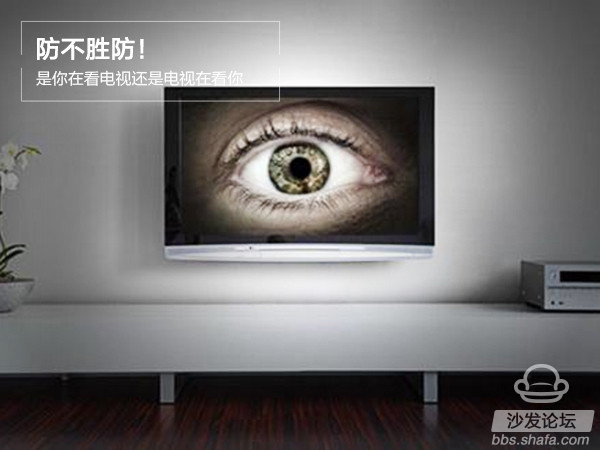
Recently, a man in Indiana, USA, discovered that smart TV in his home has been watching him and collecting information to advertisers. In a rage, the makers of smart TVs were brought to court and demanded compensation of $5 million. Thanks to the richness of Internet resources, smart TVs have quickly won the favor of consumers and also made traditional TVs gradually go to the end. Nowadays, most smart TVs use the Android system. Given the open source nature of the Android system, the security risks of the Android smart phone are also inevitable on the smart TV. Systematic loopholes, rogue software, recording monitoring and other means are really hard to detect, but you don't have to panic. Basically all ways of stealing your privacy are preventable.
Speech recognition is a double-edged sword
Voice capabilities have long been commonplace on smartphones, Apple Siri, Google google now, and Microsoft’s cortana, as well as domestic voice systems such as XFee and Baidu. In order to make it easier for users to use smart TVs, more and more manufacturers have begun to add voice recognition capabilities to smart TVs, voice control on and off, search programs, open applications, and more. While it is convenient for users, it is also the best way to steal personal privacy of users.

For mobile phones, battery life may be more important, so more often voice systems are dormant and wake up only by specific commands. On smart TVs, the vast majority of people do not use TVs to put their TVs to sleep. They do not directly remove power, do not worry about battery life, and allow users to directly control the TV when the TV is dormant. When it is turned on, the voice system on the smart TV can maintain a continuous wake-up operation to stand by at any time. Therefore, it is possible that any words spoken in front of the TV may be recorded by the TV. Your little secret will not only be known to you.
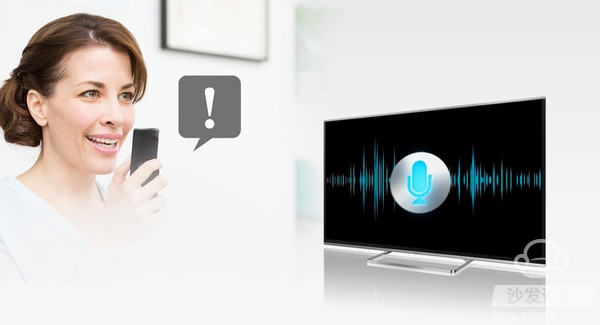
Of course, this is not to say that voice systems are so insecure. The speech recognition system receives and records the user's voice instructions and can better complete the voice function according to the user's usage habits. For issues involving user privacy, the company providing the voice service will have its own confidentiality agreement, basically reliable, it depends on you. Can not accept. In addition, it is also a risk that third-party rogue applications steal private voice recordings.
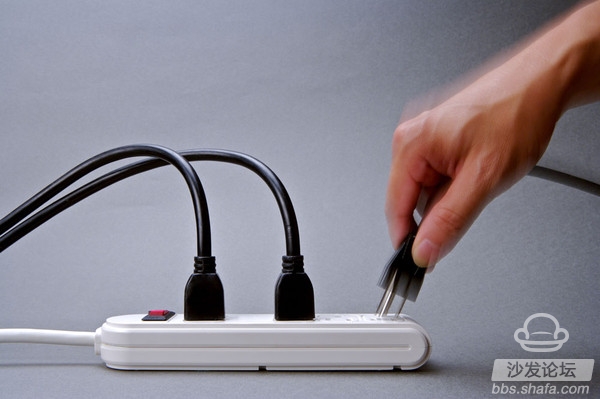
Preventive measures: Voice systems can enhance the experience of using smart TVs, but they also have the risk of leaking personal privacy issues. The author thinks that at present, the voice systems of major companies are still relatively reliable, if you do not feel at ease. The best way is to directly disconnect the power when not watching TV.
Android software abuse permissions are sick, get rule!
Since the birth of the Internet, computer viruses and rogue software have long been an object of distaste for people. Stealing user confidential information, pop-up advertisements, etc. are almost no evil. For Android phones, this problem also exists. The open source nature of Android itself allows more developers to love, can customize changes, but it can not have a unified standard. As a result, abuse of authority has become the biggest drawback of the Android system.
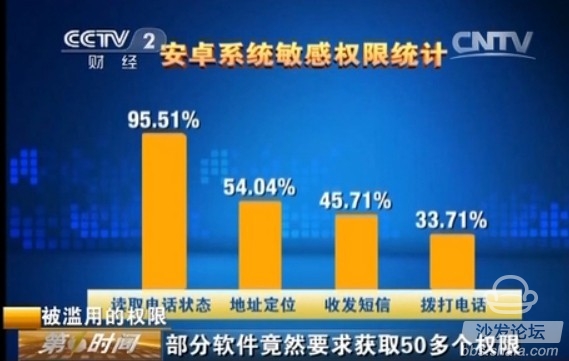
Especially in China, Google services cannot be used, third-party application stores are mostly used, and software audits are basically loose. Basically, you can see that Android software opens and starts requesting a bunch of permissions to read short messages and call records. Open the camera, voice, but for the smart TV, there is no call and SMS function, but the input method, voice, shopping and other operations will also leak confidential information such as their own accounts.
Preventive measures: For Android's permission issues, in order to prevent rogue software from stealing information maliciously, TV manufacturers should pre-configure rights management software that allows users to allocate software rights on their own (which has long been popular on smartphones). Users can also install similar applications themselves to achieve the purpose of access control. Of course, Samsung Tizen and Samsung LG's Web OS naturally do not have this option.

In addition, for various intelligent system vulnerabilities, I would like to ask how many people are recruited because of system vulnerabilities. The average person will not have any national-level or commercial-level major secrets. Even if there are loopholes, there will be so many hackers who have been staring at you. More fear is basically worrying. However, for the sake of safety, for smart TV, we still should not arbitrarily crack, ROOT or something, not only will lead to system instability, but also increase the risk of rogue software maliciously modifying the system and gaining higher system privileges.
You may be watching TV while you watch TV!
In fact, these are still quite good, the most terrible thing is that you may be watching TV while watching TV! TV adapter camera, compared to many people have seen, the main purpose of two kinds of video calls and somatosensory games . The original idea was to be able to video chat directly with the family through TV, but it also put an eye on the TV. At the same time, with the addition of voice and recording capabilities, the TV has all the monitoring conditions, isn't it?

The example of the American guy mentioned at the beginning is enough to show that the smart TV has the capability of remote monitoring. At this time, in addition to turning off the power to turn off the TV, it involves the issue of turning on the camera rights allocation. It can be seen that the permission control of the Android system is very important for privacy protection.
Preventive measures: Timely power cuts (in addition to power saving) and enhanced camera rights management.
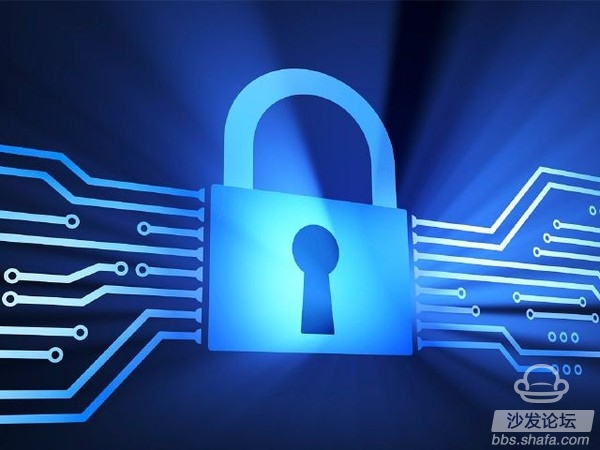
Summary: In the era of big data, the personal identity and consumption habits of users have become various data that can be stored, processed, digged, and can be integrated and used. When the user's information is collected in sufficient detail, the user's closeness to the "naked" on the Internet in real life is greater, and hidden behind the huge hidden danger is the weak awareness of user privacy protection and the lack of relevant policies and regulations. Smart products have completely penetrated into our daily lives. Privacy and security issues have become increasingly indispensable. While sighing at "prevention", what is more important is the need to learn to protect one's privacy. For smart TVs, there are aspects that are similar to Android smart phones. Understanding the ways in which privacy may be leaked, and learning how to prevent it, the so-called know-it-all is the ultimate cheat for protecting privacy and security. This law applies to all fields.

Recently, a man in Indiana, USA, discovered that smart TV in his home has been watching him and collecting information to advertisers. In a rage, the makers of smart TVs were brought to court and demanded compensation of $5 million. Thanks to the richness of Internet resources, smart TVs have quickly won the favor of consumers and also made traditional TVs gradually go to the end. Nowadays, most smart TVs use the Android system. Given the open source nature of the Android system, the security risks of the Android smart phone are also inevitable on the smart TV. Systematic loopholes, rogue software, recording monitoring and other means are really hard to detect, but you don't have to panic. Basically all ways of stealing your privacy are preventable.
Speech recognition is a double-edged sword
Voice capabilities have long been commonplace on smartphones, Apple Siri, Google google now, and Microsoft’s cortana, as well as domestic voice systems such as XFee and Baidu. In order to make it easier for users to use smart TVs, more and more manufacturers have begun to add voice recognition capabilities to smart TVs, voice control on and off, search programs, open applications, and more. While it is convenient for users, it is also the best way to steal personal privacy of users.

For mobile phones, battery life may be more important, so more often voice systems are dormant and wake up only by specific commands. On smart TVs, the vast majority of people do not use TVs to put their TVs to sleep. They do not directly remove power, do not worry about battery life, and allow users to directly control the TV when the TV is dormant. When it is turned on, the voice system on the smart TV can maintain a continuous wake-up operation to stand by at any time. Therefore, it is possible that any words spoken in front of the TV may be recorded by the TV. Your little secret will not only be known to you.

Of course, this is not to say that voice systems are so insecure. The speech recognition system receives and records the user's voice instructions and can better complete the voice function according to the user's usage habits. For issues involving user privacy, the company providing the voice service will have its own confidentiality agreement, basically reliable, it depends on you. Can not accept. In addition, it is also a risk that third-party rogue applications steal private voice recordings.

Preventive measures: Voice systems can enhance the experience of using smart TVs, but they also have the risk of leaking personal privacy issues. The author thinks that at present, the voice systems of major companies are still relatively reliable, if you do not feel at ease. The best way is to directly disconnect the power when not watching TV.
Android software abuse permissions are sick, get rule!
Since the birth of the Internet, computer viruses and rogue software have long been an object of distaste for people. Stealing user confidential information, pop-up advertisements, etc. are almost no evil. For Android phones, this problem also exists. The open source nature of Android itself allows more developers to love, can customize changes, but it can not have a unified standard. As a result, abuse of authority has become the biggest drawback of the Android system.

Especially in China, Google services cannot be used, third-party application stores are mostly used, and software audits are basically loose. Basically, you can see that Android software opens and starts requesting a bunch of permissions to read short messages and call records. Open the camera, voice, but for the smart TV, there is no call and SMS function, but the input method, voice, shopping and other operations will also leak confidential information such as their own accounts.
Preventive measures: For Android's permission issues, in order to prevent rogue software from stealing information maliciously, TV manufacturers should pre-configure rights management software that allows users to allocate software rights on their own (which has long been popular on smartphones). Users can also install similar applications themselves to achieve the purpose of access control. Of course, Samsung Tizen and Samsung LG's Web OS naturally do not have this option.

In addition, for various intelligent system vulnerabilities, I would like to ask how many people are recruited because of system vulnerabilities. The average person will not have any national-level or commercial-level major secrets. Even if there are loopholes, there will be so many hackers who have been staring at you. More fear is basically worrying. However, for the sake of safety, for smart TV, we still should not arbitrarily crack, ROOT or something, not only will lead to system instability, but also increase the risk of rogue software maliciously modifying the system and gaining higher system privileges.
You may be watching TV while you watch TV!
In fact, these are still quite good, the most terrible thing is that you may be watching TV while watching TV! TV adapter camera, compared to many people have seen, the main purpose of two kinds of video calls and somatosensory games . The original idea was to be able to video chat directly with the family through TV, but it also put an eye on the TV. At the same time, with the addition of voice and recording capabilities, the TV has all the monitoring conditions, isn't it?

The example of the American guy mentioned at the beginning is enough to show that the smart TV has the capability of remote monitoring. At this time, in addition to turning off the power to turn off the TV, it involves the issue of turning on the camera rights allocation. It can be seen that the permission control of the Android system is very important for privacy protection.
Preventive measures: Timely power cuts (in addition to power saving) and enhanced camera rights management.

Summary: In the era of big data, the personal identity and consumption habits of users have become various data that can be stored, processed, digged, and can be integrated and used. When the user's information is collected in sufficient detail, the user's closeness to the "naked" on the Internet in real life is greater, and hidden behind the huge hidden danger is the weak awareness of user privacy protection and the lack of relevant policies and regulations. Smart products have completely penetrated into our daily lives. Privacy and security issues have become increasingly indispensable. While sighing at "prevention", what is more important is the need to learn to protect one's privacy. For smart TVs, there are aspects that are similar to Android smart phones. Understanding the ways in which privacy may be leaked, and learning how to prevent it, the so-called know-it-all is the ultimate cheat for protecting privacy and security. This law applies to all fields.